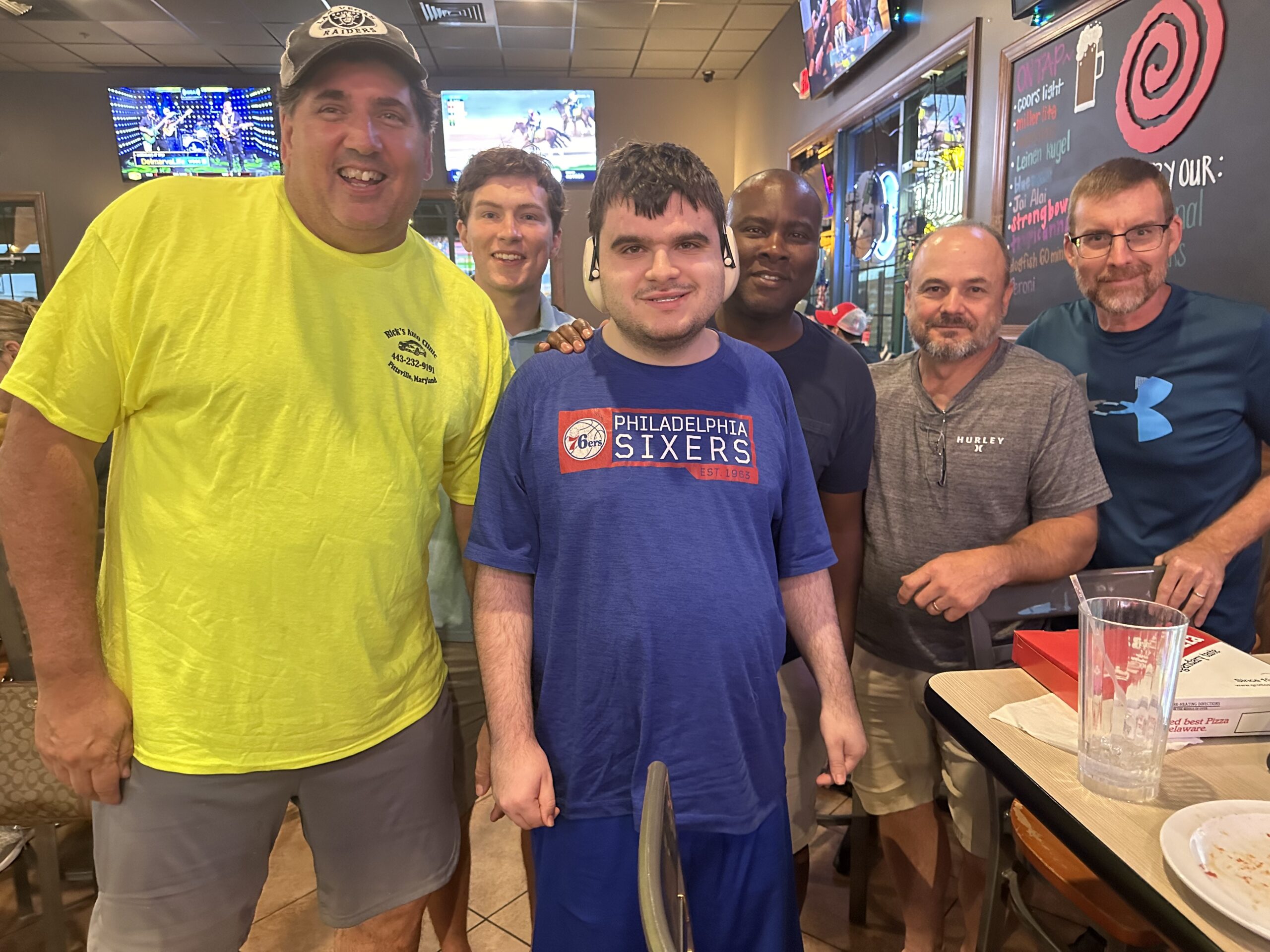
Loving the Vulnerable with Your Actions

Tom Stolle is the executive director of the Baptist Convention of Maryland/Delaware. Stolle began serving the BCM/D as comptroller in 2004 and has held the positions of chief operating officer, director of human resources, associate executive director, chief financial officer and interim executive director. He met his wife Shelley through mutual friends, and they were married in 1990. They have three adult sons, Jordan Thomas (J.T.), Jake and Jimmy. As Stolle prepared to work with the BCM/D as Chief Financial Officer, he and Shelley discovered their young son, Jimmy, had severe, life-altering, family-changing intellectual disabilities. Over the years, Stolle openly shared his and Shelley’s struggles as they loved and cared for Jimmy, often with tears and emotional and physical scars. His candid openness touched many hearts. He became passionate about assisting churches in starting and strengthening their disability ministries, and that passion became a catalyst for BCM/D’s current emphasis on disability ministry.
Sexual assault is an epidemic in America. Per Rape & Incest National Network (RAINN), every 68 seconds an American is sexually assaulted, and every 9 minutes, that victim is a child. That should get your attention! It’s horrifying. It’s evil.
For me, this issue is personal. As a parent of a young man affected by developmental and intellectual disabilities, I know my son is extremely vulnerable. I wanted to learn more. I wanted to protect him. And what I learned from my research shook me to my core.
Per National Public Radio (NPR), individuals affected by intellectual disabilities are sexually assaulted at seven times the rate of people without disabilities. Additionally, per the Pennsylvania Coalition Against Rape, more than 90 percent of individuals affected by developmental disabilities will experience sexual abuse in their lifetime, and 49 percent will experience ten or more abusive incidents.
For individuals like my son, the statistics paint a grim picture. It’s not a matter of “if” for him. It’s a matter of “when.” It’s not one child every nine minutes. It’s much worse. It’s much more frequent. Keep in mind that while my son is physically an adult, mentally, he will always be a child.
To adequately consider the scope of this issue, consider that there were approximately 8.4 million people affected by an intellectual or developmental disability in the United States in 2020. I believe Jesus wants these individuals to know Him and to know He loves them.
Like many individuals affected by these types of disabilities, my son is compliant. He is dependent on caregivers and others who provide support, and he can be easily taken advantage of by a perpetrator. For individuals like my son, the church must not ignore this reality.
How can the church say, “Everyone is welcome,” but not put safeguards in place to protect the vulnerable? How can the church say, “Jesus loves you,” but not put policies and procedures in place to protect the vulnerable? If a child or a vulnerable adult is abused in church, even though that person has been told they are loved, they may conclude in their own mind that God hates them. To go to the house of God and to be abused is one of the vilest forms of evil.
Jesus said in Mark 9:42 (ESV), “Whoever causes one of these little ones who believe in me to sin, it would be better for him if a great millstone were hung around his neck and he were thrown into the sea.”
Jesus is saying that a person would be better off dead than causing a child to sin.
Failure to protect the vulnerable in the church and the resulting abuse can easily drive these children away from Jesus. Saying we love them must be more than empty words. The words must be evidenced by action.
My son gets excited when he goes to church. He has men who care for him, protect him, and share the Gospel with him. Policies and procedures are put in place to protect him. They say they love him; their actions prove they do. There is consistency. There is protection. He can experience the love of Jesus for himself in the ways he is able.
I am asking the churches to examine their policies and procedures and prioritize protecting the vulnerable by developing and maintaining them.
Love must be backed up by action. Jesus made no empty promises. Neither should His church.
Let’s love well! Let’s prove our love in our actions! Amen!
- SBC Abuse Prevention & Response department launches new HelplineThe SBC Abuse Response Helpline has experienced a significant update in conjunction with a new partnership with The Evangelical Council for Abuse Prevention (ECAP). The Helpline can be contacted by calling 833-611-HELP or by visiting https://sbcabuseprevention.com/helpline. The website also features email and chat options.
- The Path Forward – Repentance & AccountabilityWhen misconduct allegations surface, the clock starts ticking. Phones buzz, social media erupts, and the very people a congregation longs to protect begin asking hard questions. In those first frantic minutes, improvisation invites confusion; preparation invites clarity. Our churches—already under a media microscope for their handling of abuse—must have a plan in place long before a pastor’s phone lights up at midnight, even if the allegations are false.
- From Scramble to Strategy: How SBC Churches can Pre-Game a PR CrisisWhen misconduct allegations surface, the clock starts ticking. Phones buzz, social media erupts, and the very people a congregation longs to protect begin asking hard questions. In those first frantic minutes, improvisation invites confusion; preparation invites clarity. Our churches—already under a media microscope for their handling of abuse—must have a plan in place long before a pastor’s phone lights up at midnight, even if the allegations are false.
- Guard the GatesIn John, Jesus gives this description of the Good Shepherd and describes Himself as being the narrow door by which those who enter are saved. He talks about the thief and the robber climbing the fence to try to get into the sheepfold to harm the sheep. Then in verse 3, Jesus refers to the gatekeeper as being the one who opens the gate when the Shepherd speaks. Let’s consider the gate and the gatekeeper as they relate to church security.
- Recognizing Abuse in Marriage: A Crucial ResponsibilityEvery marriage faces challenges, but not all problems are equally severe. As shepherds and counselors, we have a responsibility to not only address marital issues but also to recognize instances of abuse. This awareness is vital, as it enables us to discern what kind of support and counsel is needed. Abuse within a marriage context is one of the most complex and confusing counseling situations.



